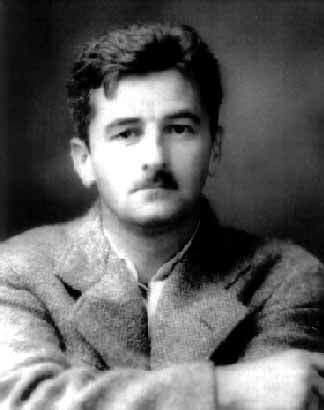September 29, 2005
-
William Faulkner
(1897-1962)
“No matter how piercing and appalling his insights, the desolation creeping over his outer world, the lurid lights and shadows of his inner world, the writer must live with hope, work in faith.”
J.B. Priestley
“I decline to accept the end of man.”
William Faulkner: Nobel Prize Speech
Stockholm, Sweden
December 10, 1950
“All his life William Faulkner had avoided speeches, and insisted that he not be taken as a man of letters. ‘I’m just a farmer who likes to tell stories.’ he once said. Because of his known aversion to making formal pronouncements, there was much interest, when he traveled to Stockholm to receive the prize on December 10, 1950, in what he would say in the speech that custom obliged him to deliver. Faulkner evidently wanted to set right the misinterpretation of his own work as pessimistic. But beyond that, he recognized that, as the first American novelist to receive the prize since the end of World War II, he had a special obligation to take the changed situation of the writer, and of man, into account.”
Richard Ellmann
I feel that this award was not made to me as a man, but to my work–a life’s work in the agony and sweat of the human spirit, not for glory and least of all for profit, but to create out of the materials of the human spirit something which did not exist before. So this award is only mine in trust. It will not be difficult to find a dedication for the money part of it commensurate with the purpose and significance of its origin. But I would like to do the same with the acclaim too, by using this moment as a pinnacle from which I might be listened to by the young men and women already dedicated to the same anguish and travail, among whom is already that one who will some day stand where I am standing.
Our tragedy today is a general and universal physical fear so long sustained by now that we can even bear it. There are no longer problems of the spirit. There is only one question: When will I be blown up? Because of this, the young man or woman writing today has forgotten the problems of the human heart in conflict with itself which alone can make good writing because only that is worth writing about, worth the agony and the sweat. He must learn them again. He must teach himself that the basest of all things is to be afraid: and, teaching himself that, forget it forever, leaving no room in his workshop for anything but the old verities and truths of the heart, the universal truths lacking which any story is ephemeral and doomed–love and honor and pity and pride and compassion and sacrifice. Until he does so, he labors under a curse. He writes not of love but of lust, of defeats in which nobody loses anything of value, and victories without hope and worst of all, without pity or compassion. His griefs grieve on no universal bones, leaving no scars. He writes not of the heart but of the glands.
William Faulkner
(1897-1962)

 Back to Thoughts Worth Thinking Page
Back to Thoughts Worth Thinking Page